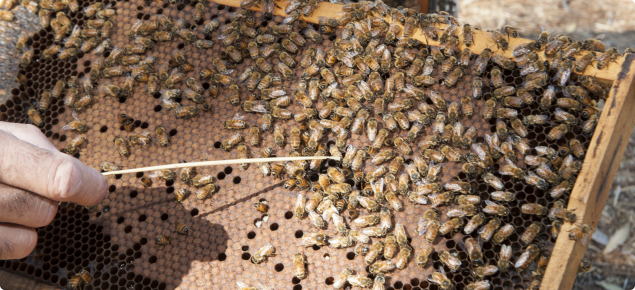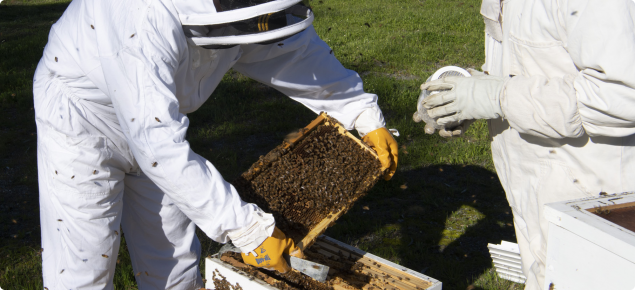Exotic mite surveillance
Under the Australian Honey Bee Industry Biosecurity Code of Practice, all beekeepers are required to check at least one hive per apiary for external parasites, such as Varroa mites, twice per year (usually in autumn and spring). Varroa are very difficult to detect during regular brood inspections, therefore beekeepers must use an alcohol wash, sugar shake or drone uncapping surveillance method. It's important to report these surveillance results, even if mites are not detected, as it provides evidence that specific pests are absent from WA.
To report exotic mite surveillance activities in WA:
- Ensure your beekeeper registration is up to date with the department (it's a legal requirement for keeping honey bees in WA). To register as a beekeeper in WA, visit our bees webpage or call the department's Brands Office on 1300 926 547.
- Check your apiary for exotic mites using an approved method: alcohol washing, sugar shaking or drone uncapping. To learn about these surveillance methods, visit the BeeAware’s Surveillance for exotic pests webpage.
- Submit the Report Honey Bee Mite Surveillance Results online form with:
- Your beekeeper registration (brand) ID.
- The apiary postcode.
- Number of hives checked for mites (using an alcohol wash, sugar shake and/or drone uncapping).
- Mites detected (yes/no).
If you detect exotic mites during apiary surveillance activities, keep the sample and immediately call the Exotic Plant Pest Hotline on 1800 084 881. If you encounter any difficulties with the online form, email PBhoney@dpird.wa.gov.au for assistance.
Established bee pests and diseases
Beekeepers in WA can help the department map the distribution of pests by reporting established bee pests and diseases using the MyPestGuide® Reporter app.
Declared pests that are present throughout WA (such as American foulbrood) must be reported to DPIRD by:
- by emailing the department’s apiary unit at PBhoney@dpird.wa.gov.au
- calling our Pest and Disease Information Service on (08) 9368 3080; or
- submitting a report using the MyPestGuide® Reporter app (factsheet for MyPestGuide™ Bee Survey).
For further information on reporting established bee pests in WA, view the department’s field guide to Honey Bee Biosecurity in WA and factsheet on the MyPestGuide Bee Survey.
Exotic bee pests and diseases
If you suspect you have seen an exotic bee or bee pest, immediately call the Exotic Plant Pest Hotline 1800 084 881. Examples of exotic bee pests include Small hive beetle (restricted to WA’s Kimberley region), European foulbrood, Varroa mites, and Deformed wing virus. Examples of exotic bees include the Red dwarf honey bee and Bumblebees. To learn more about exotic bees and bee pests, view the Honey Bee Biosecurity in WA field guide and visit the BeeAware website.


